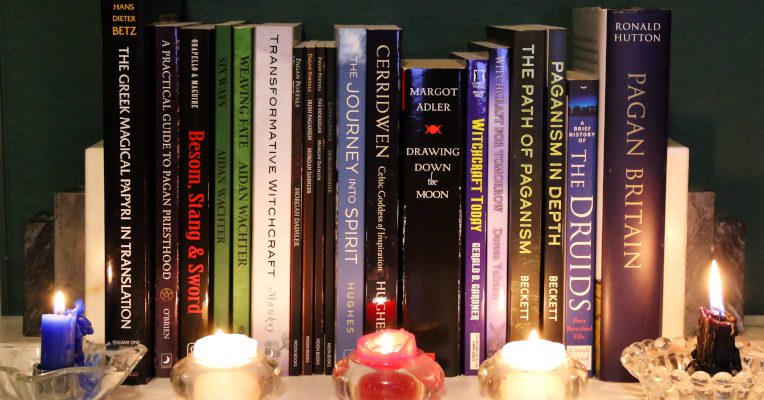We live in the most religiously diverse society in the history of humanity.
This is true much of the world, and it’s especially true here in North America.
Most people in most of the world throughout most of history have simply followed the religion of their parents and grandparents before them. There have always been converts, but they were usually few – unless you got caught up in a mass conversion, such as the not-exactly-voluntary conversion of whole nations to Christianity or Islam.
The idea that religion is something you can choose is a very new concept, and the idea of religious seekers – people actively trying to find the “right” religion for themselves – is even newer.
Meanwhile, established religions can no longer count on a steady stream of births to keep their churches and other houses of worship filled generation after generation. Even those without a long tradition of proselytizing have to recruit to stay alive.
I call this situation “the marketplace of religions.” I don’t think I coined that phrase, but I can’t remember where I heard it, and I can’t find it on Google.
Regardless of who came up with it, it’s a good metaphor for our overall religious environment.
Think of an open-air market where the purveyors of every religion currently known to humanity are offering their wares: Buddhists and Baptists, Pagans and Presbyterians, Hindus and Heathens. It’s filled with shoppers who are looking for something that will work for them. As always when you’re dealing with shoppers, some want the best they can get, while others are looking for something that won’t cost too much – and cost is measured in time and commitment, not money (for some it is measured in money, but that’s another rant for another time).
Some people don’t like this term. It implies that religion is something to be bought and sold, not a sacred tradition. I get that. In 2018 I offered a glorious garden of religions as an alternative. But whether you call it a marketplace or a garden or something else, the situation remains the same. We’re living in a religiously diverse society where many people are looking for something that fits them better than what they grew up with. They need something that will be meaningful and helpful to them as they make their way through a world that’s growing more and more difficult and unpleasant.
We Pagans are part of this marketplace whether we want to be or not.
I used to advocate for growth strategies for Paganism (by which I mean all the different traditions under the Big Tent). I had dreams of Paganism becoming a mainstream religion. I still think the world could use what we offer – mainly understanding the the Divine as many and a reverence for Nature – but that kind of widespread acceptance isn’t going to happen in my lifetime. Or likely, in the lifetime of anyone alive today. So I don’t do that anymore.
Instead, I want to think about how we should approach and interact with the marketplace of religions.
Make sure people can find us
I often say “Pagans don’t proselytize, but we better publicize.” We need to make sure that people who want what we have and do can find us.
This is certainly easier than it was in previous years. When I was 13 I wanted a book like Mat Auryn’s Psychic Witch – it simply didn’t exist. There’s a whole generation of “Barnes & Noble witches” who got their start in the 1990s because books on witchcraft and Paganism were easily available. Today there are countless books available from Amazon and other booksellers, websites and blogs (including this one), and formal and informal communities on social media.
People who look for us can find us. Our job is to make sure they know we’re here, so they know they can look for us if they want.
That means having a public-facing presence: participating in multi-religion events and multi-religion websites (like Patheos). It means being “out of the broom closet” – at least to the extent it’s safe for you. Not to proselytize (Pagans don’t proselytize!) but just to let people know we exist. It means presenting our values (especially religious plurality and the sacredness of Nature) in the public square.
Let’s make sure people can find us.
Make sure people can find accurate information about Paganism
It’s nice to see witches and Pagans on TV. Representation is always good, and it creates some publicity for us. It also creates some unrealistic ideas and expectations.
People know the magic they see in fiction isn’t real. But they don’t always understand that we know it’s not real too – but we can work magic anyway. It’s nice to see the Greek Gods in movies, but “Zeus behaving badly” doesn’t inspire people to explore authentic worship of the Olympians and other deities.
And let’s face it – social media is not a reliable source for education on any topic, Paganism included.
It’s not my job to correct every error on the internet – that way lies insanity. It is my job to make sure people who are looking for information on Paganism, Druidry, witchcraft, magic, and related topics have reliable and accurate sources.
Make sure we continue to have access to the marketplace
This year has seen a rash of book burnings and book bans. On one hand, these are isolated incidents that have increased book sales and called attention to things people should be reading. On the other hand, the political environment is getting nastier, especially in places like Texas and Florida.
Religiously, the fundamentalists are directing most of their attacks toward Muslims and atheists. There aren’t enough Pagans for them to worry about, at least for now. And they’re doing their best to use the power of government to promote their religion at the expense of everyone else.
At this point, our best course of action is to make sure everyone has access to the marketplace. Right now that mainly means supporting Muslims and atheists and opposing those who want to make their version of Christianity into the religious norm.
Don’t minimize our distinctions
It’s not “many paths up the same mountain.” It’s many paths up many different mountains. Different religions have different myths, different virtues, and different values. Animism isn’t the same as materialism. Polytheism isn’t the same as monotheism or the same as atheism.
Arguing about who’s right – and especially about who has the “one true way” – is counterproductive and often harmful. But the answer isn’t to whitewash over our differences and distinctions. The answer is to respect different beliefs and different practices for what they are.
Not every tradition is worthy of our respect. But we make that determination based on how people live their lives and how they treat other persons, not on how close their beliefs are to ours.
Don’t tell shoppers in the marketplace of religions “deep down it’s all the same.” Tell them what makes us unique, and then let them decide if that’s something that appeals to them or not.
Monitor our own and call out toxic traditions
We want to help people find the path that’s right for them. We also want to keep them from falling in with toxic groups and traditions.
Sometimes this means groups with manipulative and abusive leaders. These can be hard to spot, but when you see something that doesn’t look right, look into it. When you hear reports of abuse, look into it. Yes, sometimes it’s just personality conflicts and related “drama.” But when you hear multiple reports, odds are good something’s not right.
Other times this means groups with hate-filled beliefs and practices. There’s a constant battle in Heathenry to weed out the fascists, white supremacists, and outright Nazis. But don’t for a minute think such ideas are limited to Heathenry. It’s a problem in our wider culture, so you can find problems in virtually every Pagan tradition.
This means guiding newcomers away from groups and traditions that emphasize having the “right” ancestry, that are unaccepting of LGBTQ people, and that promote conspiracy theories.
I’m not running an inquisition and I refuse to participate in “mass shunnings.” But I want to make sure everyone knows who’s folkish (or outright racist), who’s homophobic and/or transphobic, and who’s spreading lies and misinformation.
You do what you’re called to do
I grew up in a church where everyone was expected to proselytize. That’s the last thing I want for Paganism, even after you draw a clear bright line between proselytizing and publicizing. Everybody doesn’t have to be a public Pagan.
But we live in a marketplace of religions. Our traditions need new blood, and some people need and want what we have. Let’s make it easy for them to find what they’re looking for.




















